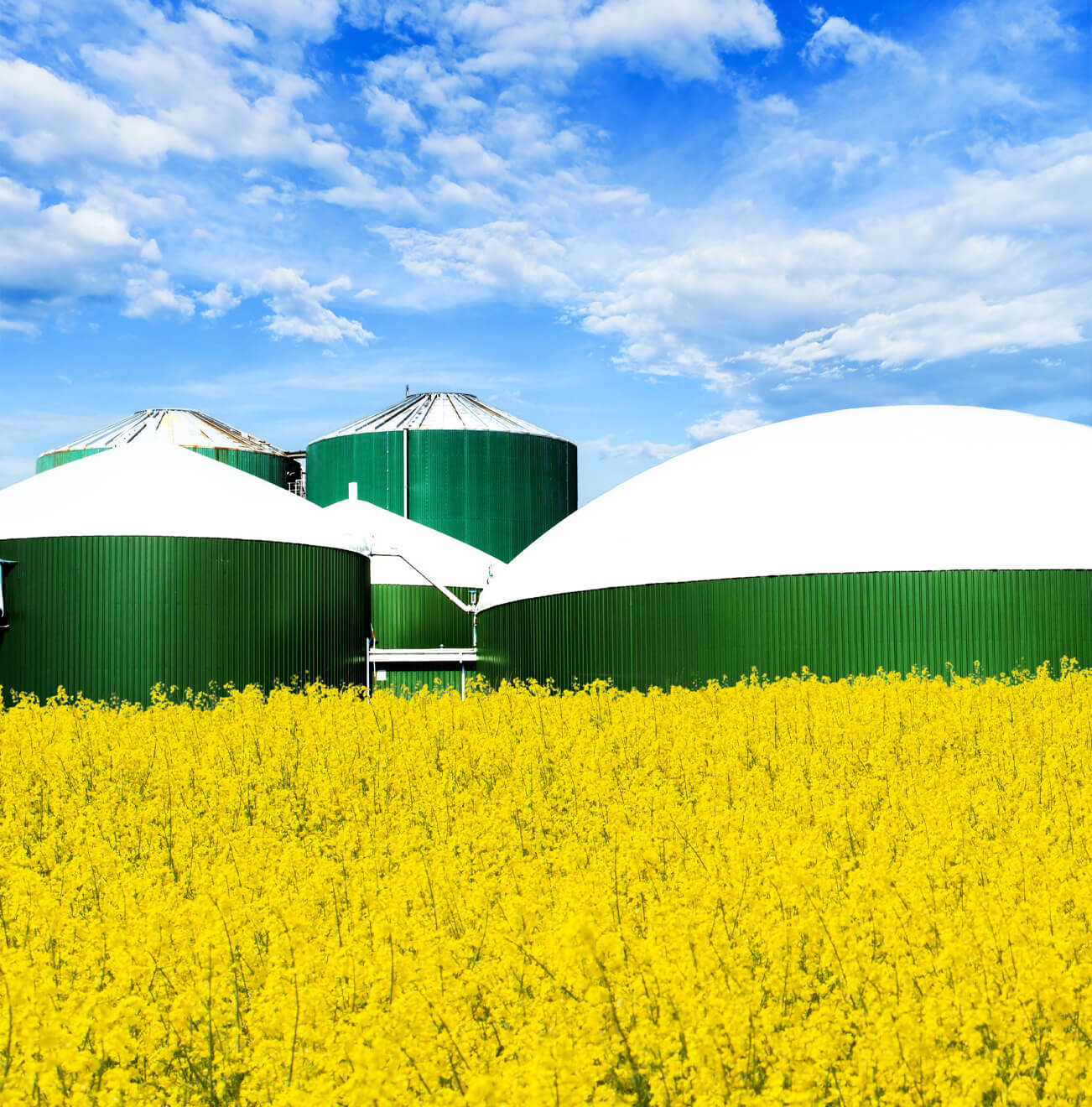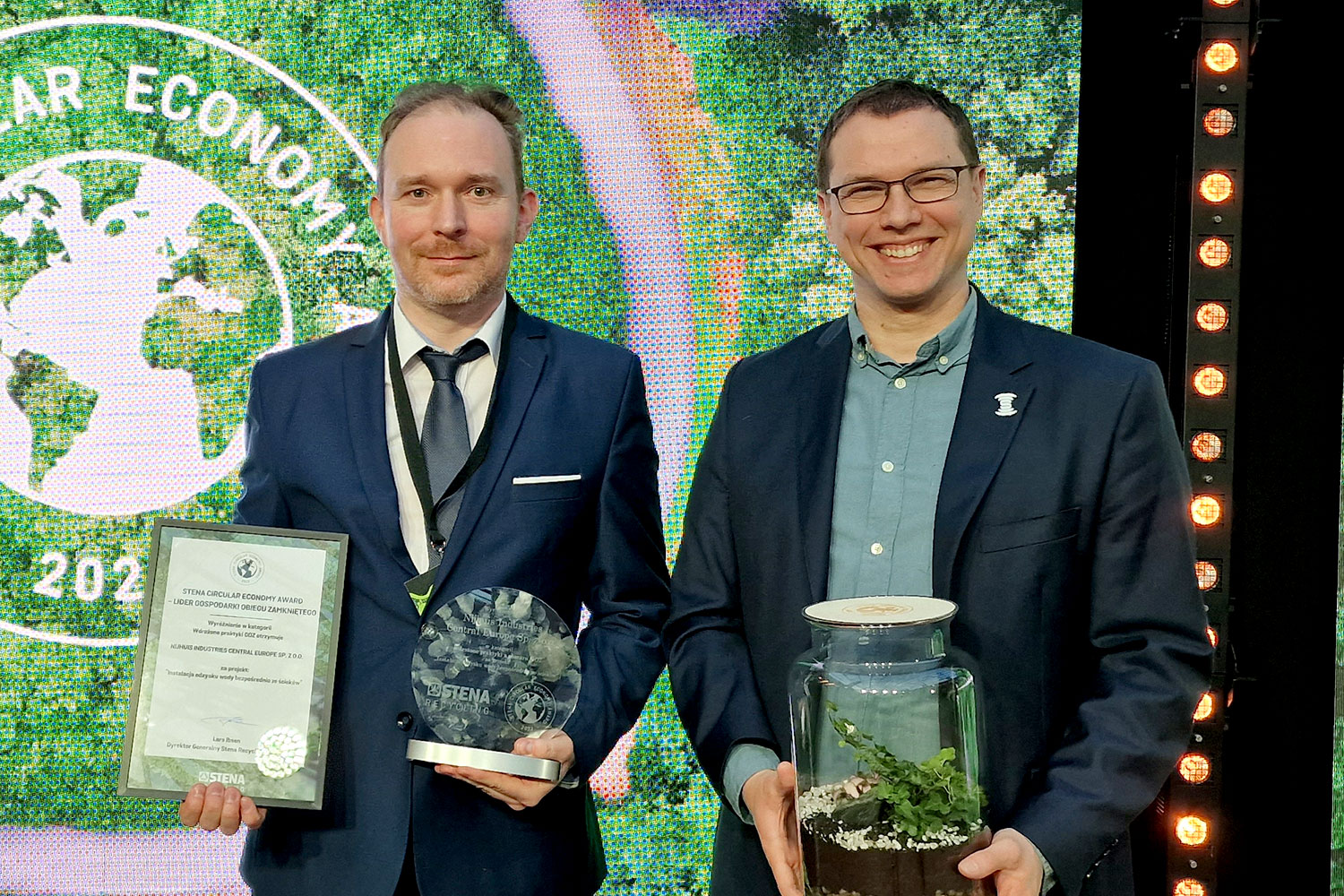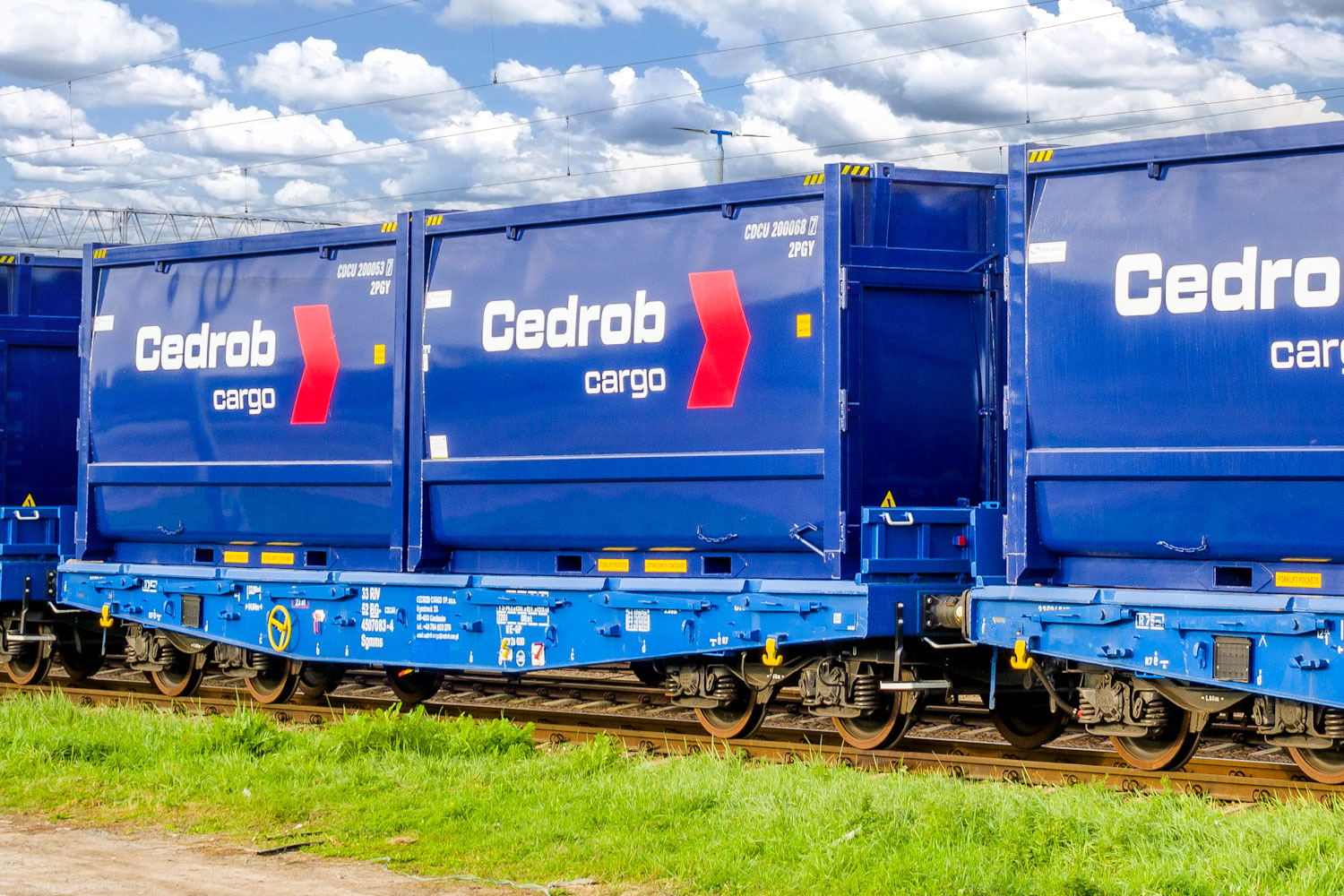GREEN DEAL
The growing global population poses new challenges for producers on how to provide food for humanity while maintaining environmental sustainability and reducing the negative impact of the agricultural and food sector on the environment. Cedrob makes conscious use of natural resources and takes a number of measures to minimise the negative impact of its activities on the environment.ENVIRONMENTAL MEASURES
BUILDING A FUTURE FOR OURSELVES AND FUTURE GENERATIONS

Reducing greenhouse gas emissions is a cornerstone of the European Union’s climate policy, the so-called New Green Deal. Reducing carbon emissions will be a long and expensive process for all EU countries. Furthermore, the global energy crisis, problems with the availability of raw materials and their high purchase costs are strong determinants for a change in energy policy.
At present, Cedrob S.A. is an important economic player on the Polish and European markets. We are the largest meat producer in the country and a highly appreciated producer and distributor of cold cured meats. Our products find their way onto the tables of millions of satisfied consumers every day, who can be sure that by choosing our brand, they are supporting sustainability.
Following the pro-environmental dimension of our business activities, we are successively investing in biogas plants that allow us to reduce CO₂ emissions as it has emerged that the production of biomethane from, i.a. agricultural and food waste, could reduce greenhouse gas emissions in Poland by up to 26 million tonnes a year, which would offset 80% of greenhouse gas emissions from agriculture. The biomethane generated would in turn make it possible to produce up to 30.5 TWh of clean energy. Our conviction is that a successful energy transition will not succeed by just top-down prescriptions and requires a change in approach and the involvement of all parties in the process. The management of Cedrob S.A. is actively responding to the changes taking place and implementing new pro-ecological measures.
A biogas plant has been built in Ujazdówek near Ciechanów, where the company’s headquarters and main poultry meat production plants are located. It processes sludge from the on-site wastewater treatment plant in order to dispose of it and convert it into substrates that can be used to fertilise the soil.
Since the very beginning, Cedrob S.A. has striven to build a complete production chain, taking care of food quality and safety at every stage. The implementation of innovative solutions in our plants enables us to meet the global sustainable development goals formulated by the UN on a larger scale.
DR RADOSŁAW MAJEWSKI, HEAD OF THE ENVIRONMENTAL TEAM AT CEDROB S.A.
OUR APPROACH TO THE ENVIRONMENT
As a leader in the production of poultry meat, chicks and feed, Cedrob takes intensive measures to care for the environment and ecology, so that the company’s production has less interference with the environment. The technical infrastructure in existing plants is being upgraded and solutions are being implemented at new locations to reduce the impact on nature as much as possible.4 000 m3 of water
COMES FROM THE WASTEWATER TREATMENT PLANT IN UJAZDÓWEK
less CO2
THANKS TO THE BIOGAS PLANT IN UJAZDÓWEK, over 2,500 tonnes
more than 94%
WATER USED BY THE COMPANY IS OBTAINED FROM ITS OWN DEEP WELLS
100%
WE PROCESS SLAUGHTERHOUSE RAW MATERIALS TO PRODUCE TOP-QUALITY ANIMAL PROTEINS AND FATS
A DROP WORTH ITS WEIGHT IN GOLD
The significant role of water and its resources makes us determined to optimise our production processes in terms of water consumption. We have invested in state-of-the-art wastewater treatment plants and a water recycling system that is unique in the country and Europe, which allow us to further reduce the extraction of water from underground sources and its consumption, while also reducing the amount of wastewater produced.
The pioneering Water Reclaiming Installation directly from wastewater, operating at the Wastewater Treatment Plant at the Cedrob S.A. plant in Ujazdówek, was awarded the prestigious 6th Stena Circular Economy Award in the category of Implemented Closed Loop Economy Measures.
For the control of water consumption, it is also important to meet certain quality requirements and to comply with the sanitary regime during production. Water in a closed system, after treatment, can be recycled back into production processes instead of ending up as wastewater in the on-site or municipal treatment plant.
Producing the cold necessary for meat production generates surplus heat energy that can be used to heat utilities such as water, instead of traditional methods using fossil fuels such as coal or gas, which also generate nitrogen dioxide, sulphur oxides and carbon monoxide into the atmosphere.
Using waste heat generated, for example, by electrical appliances, is also important. At Cedrob, we use waste heat from the air compressors with which we heat the attic during autumn and winter, rather than release it directly into the atmosphere and heat it up further.
PROMOTING GOOD HABITS
We focus on segregating waste more effectively, while reducing waste generation. An example of this is the systematic reduction in the purchase of bottled water for employees in favour of tap water treatment systems. It seems trivial, but with the total number of employees in our company, if we add up the employees working in the feed mills, hatcheries and slaughter plants, this is a substantial amount of plastic waste. On the other hand, tap water, once properly treated and purified, is often more suitable for consumption than bottled water.
HYBRID POWER
We also actively introduce energy-saving solutions and invest in a modern fleet with lower emissions. Our transport fleet is based on vehicles that meet Euro-5 and Euro-6 emission standards. We are investing more and more in hybrid passenger cars, that is, with very low emissions.
TIME FOR THE RAIL DIRECTION
Cedrob established Cedrob Cargo, a company responsible for the rail transport of raw materials for feed production, so that emissions from road transport are not generated, in order to at least partially compensate for environmental losses. Neither is the maintenance of an appropriate acoustic climate forgotten, using low-noise equipment, and where equipment cannot be made quieter, we use silencers and acoustic barriers to further silence it.
We plan to continuously improve efficiency in the long term and invest in the expansion of processing capacity. Investments that fit in with the circular economy and sustainability, reducing negative environmental impacts, will be particularly important to us.